NEW POETIC APPROACHES.
Hello! RPO is finally done, and now it’s time to focus on project development and further focus. I took a break of a few days after submitting the RPO so when I read it back on Wednesday with a fresher mind I only then realised how large the ‘Bengaluru’ focus was, and how much space it was taking up in all my research. According to my approaches and methods section, I was planning to create a series of prototypes ‘based on specific local scenarios identified through unstructured interviews, in-person exploration and further reading’.
When planning for my graduation project work, I started to feel that maybe my research was being weighted the wrong way. Currently, I have two major factored pillars: Bengaluru’s context and Living Media Interfaces and I do wonder if they should be taking up the same amount of real estate. I most definitely do not have the word count to cover both in immense detail, and considering the fact that my Bangalore visit is just a month, can I really do that much?
Andreas also had mentioned in passing earlier that the HCI, or rather, the HPI (Human Plant Interaction) aspect in my literature section could be more expansive. To remedy that, I continued reading ‘The Materiality of Interaction’ by Micheal Wilberg and tried to specifically map out aspects of my project to processes mentioned in it.
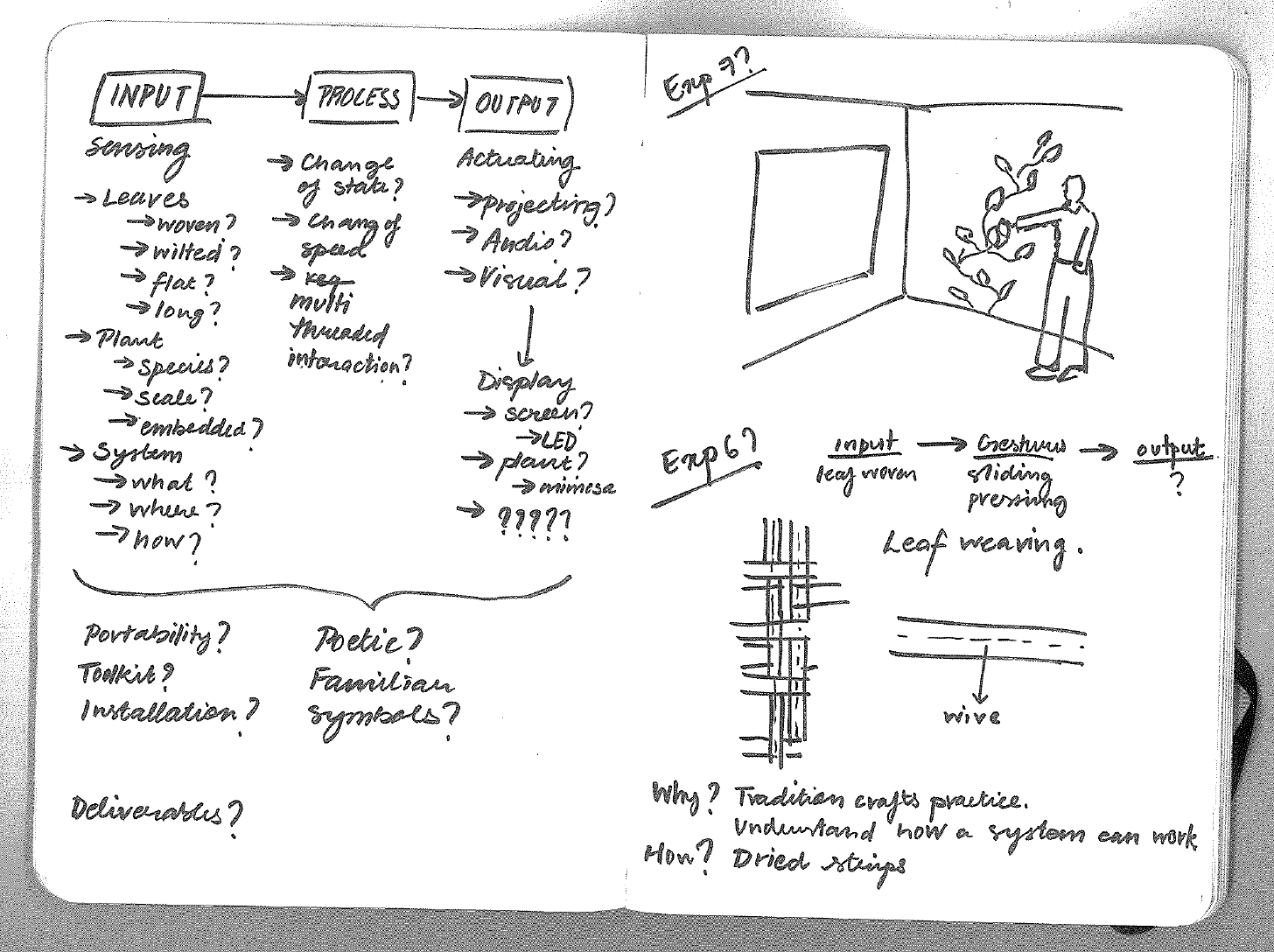
Here’s what I have so far: somewhat of a matrix that essentially breaks down the HPI process into Input->Process->Output and the various permutations I can have with my own project.
With this approach, which focuses more on the nuances of interaction, I veer slightly away from focusing on Bengaluru and more towards living media interfaces and their application, which is much more doable, interesting and appealing.
Struggles with accessing the poetic comp reader
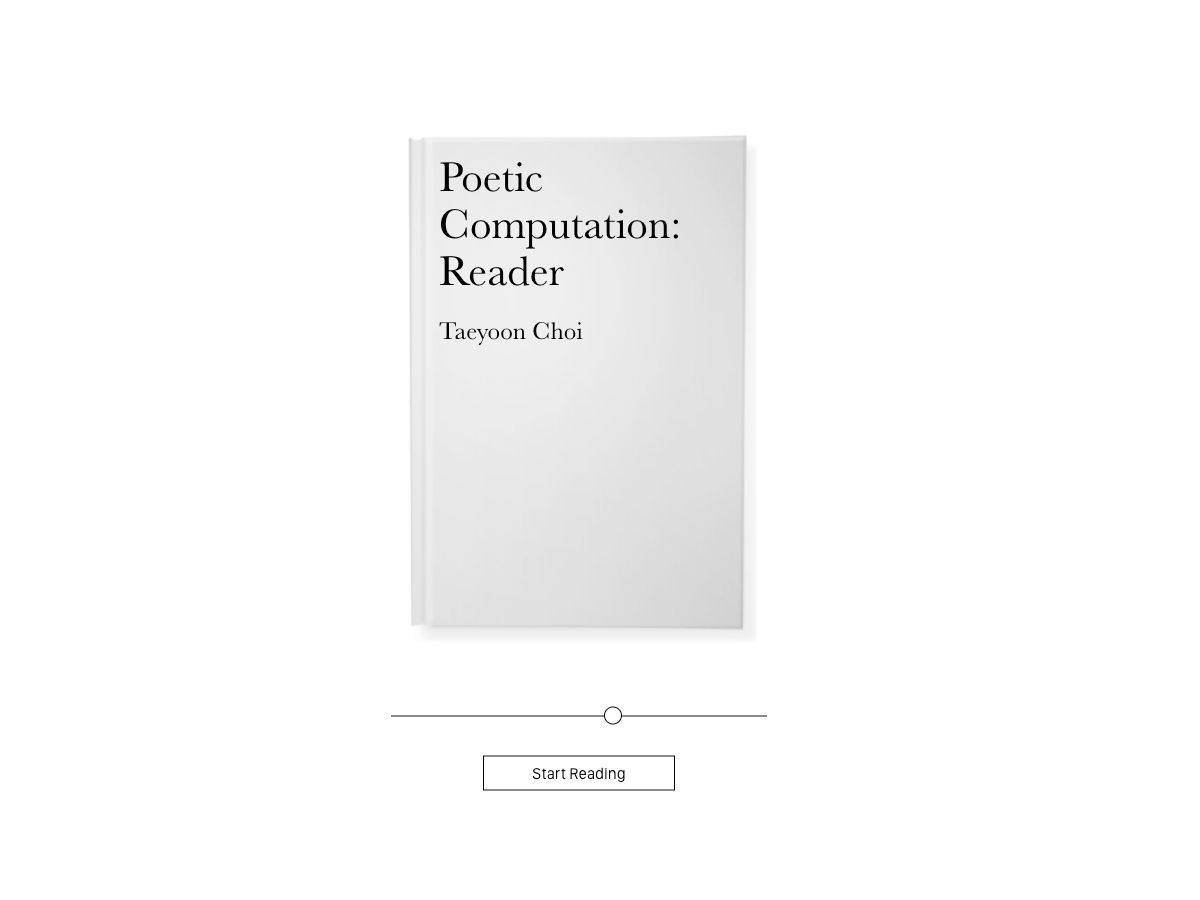
I have also been trying to desperately read the Poetic Computation Reader by Taeyoon Choi. It's an online book that discusses code as a form of poetry and aesthetic while raising ethical questions associated with it. The book is based on Choi’s lectures at the School for Poetic Computation, an independent school he co-founded in New York City.
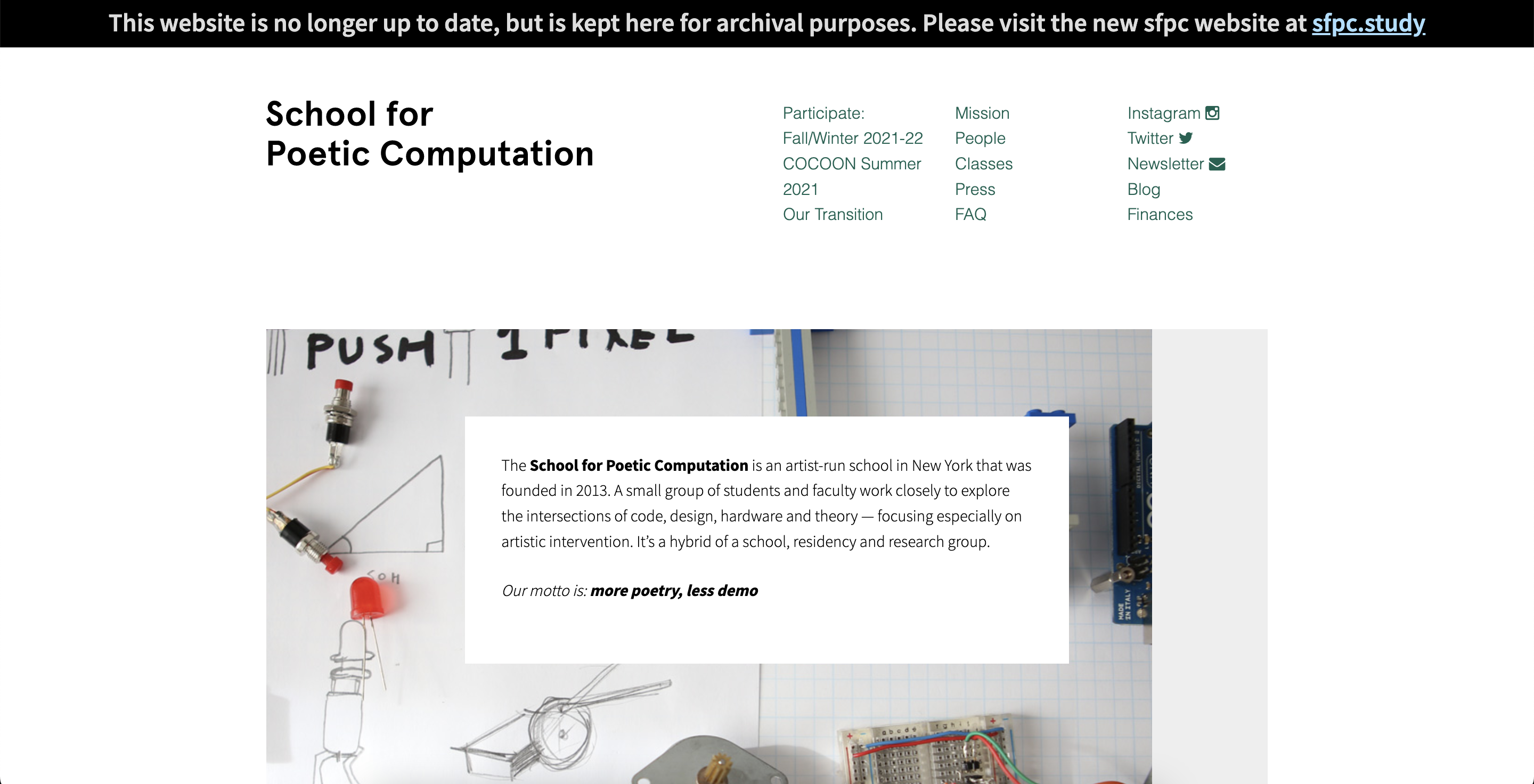
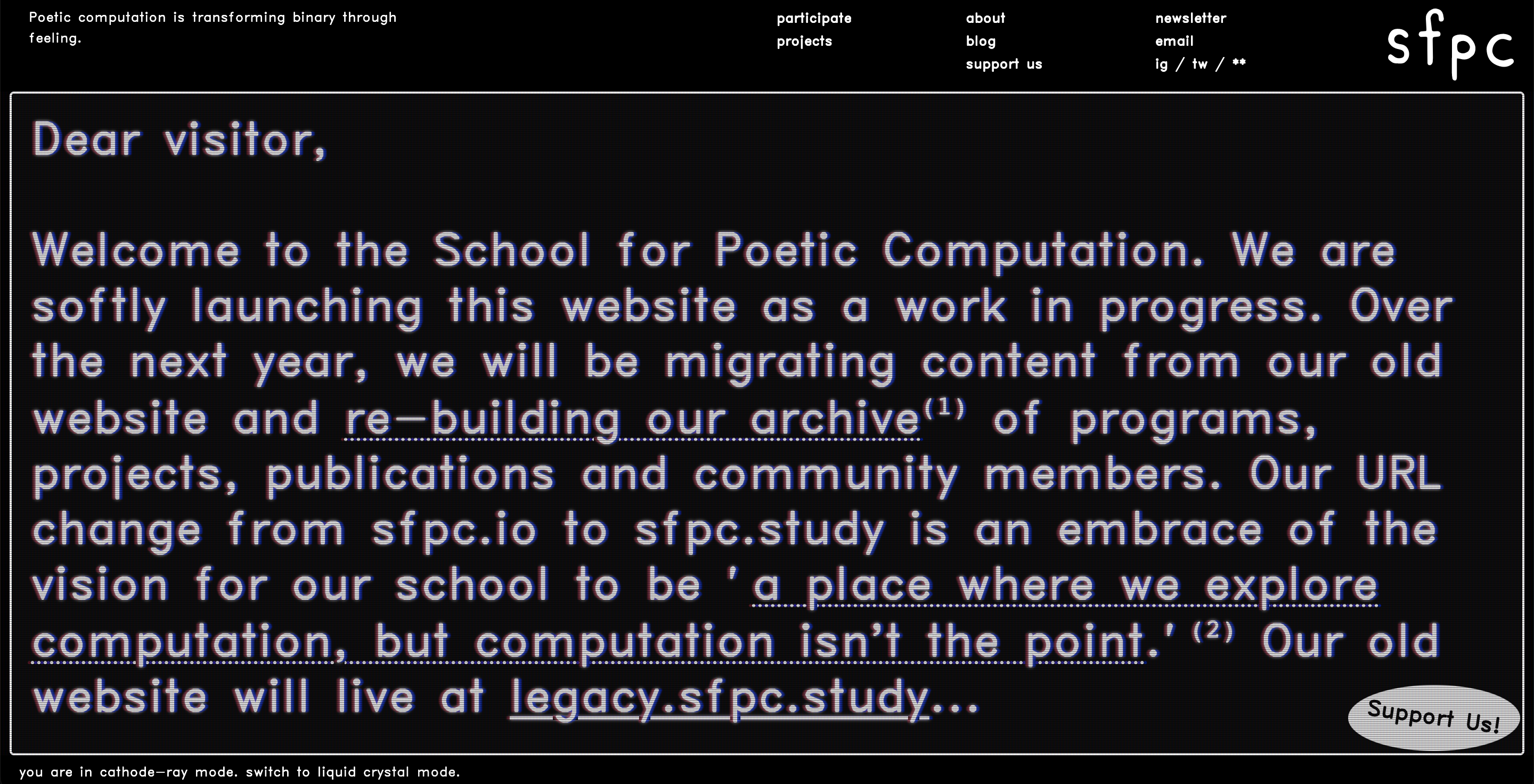
The actual reader website is down because the Poetic Computation school as a whole has been revamped in the past few months. Andreas tells me it’s a management change: everyone who used to run the school has been replaced/have left so now it’s apparently taking a new direction. The website reflects that: it used to have a relatively simple layout and was pretty straightforward! The new one is much more stylized, incorporating CRT displays as a background.
On further research I realised there was actually quite a bit of drama associated with the management change, related to the Black Lives Matter movement, as outlined here in this Medium article. There was also an open letter penned by Taeyoon Choi himself detailing everything. Damn!
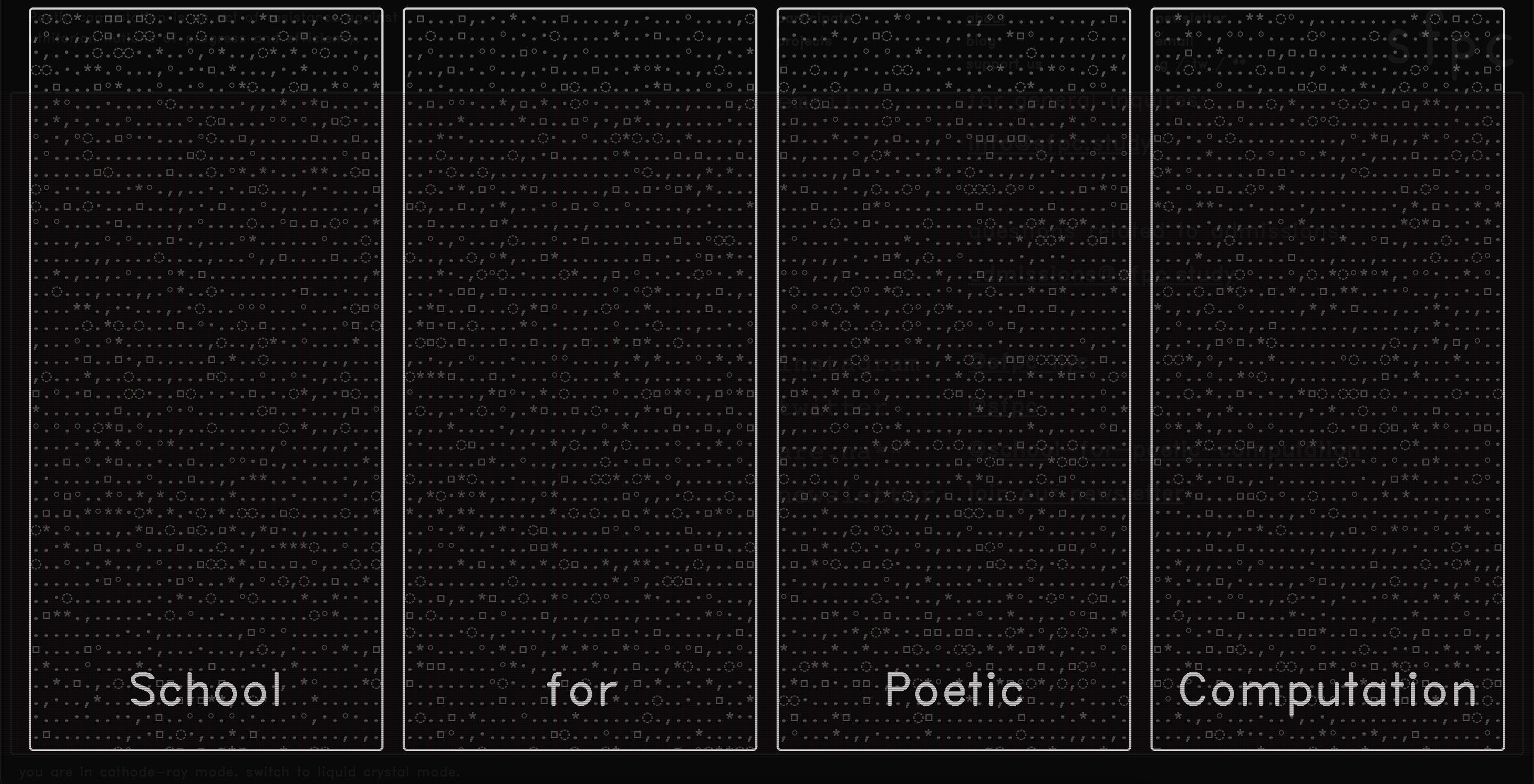
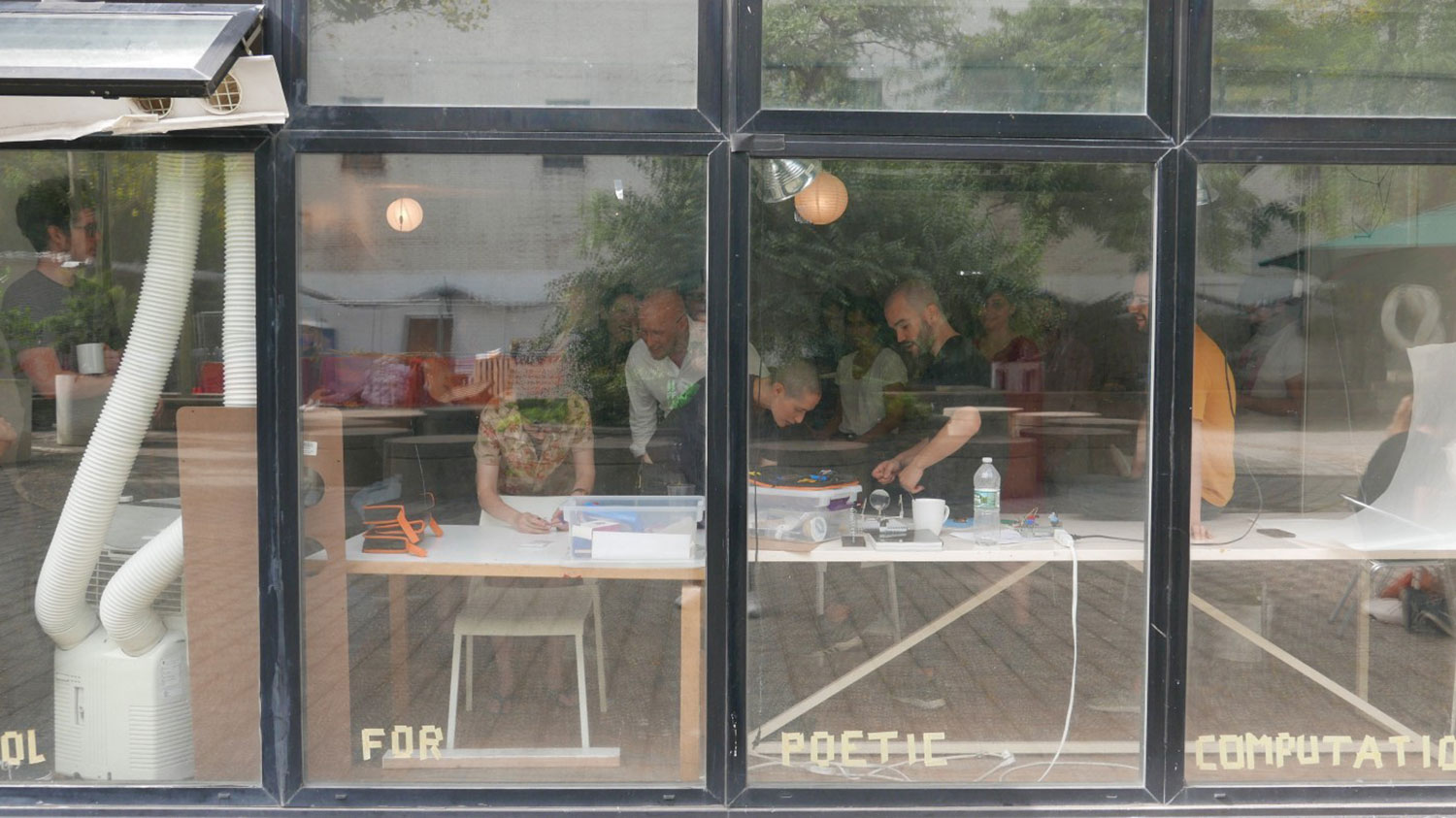
One thing I do like about the new website is the use of the windows (four rectangles) as a way to tie back their website to the real, physical space. I think since the school is now operating online, it’s a nice way to reference their roots.
Anyways, back to the reader. I just want to read it, man, but I simply cannot figure out how to access a working version. Andreas suggested looking it up in archive.org but when I tried only a few people had captured it so I could only barely access the first page (and half of it was covered by a menu). Maybe I went about this wrong?
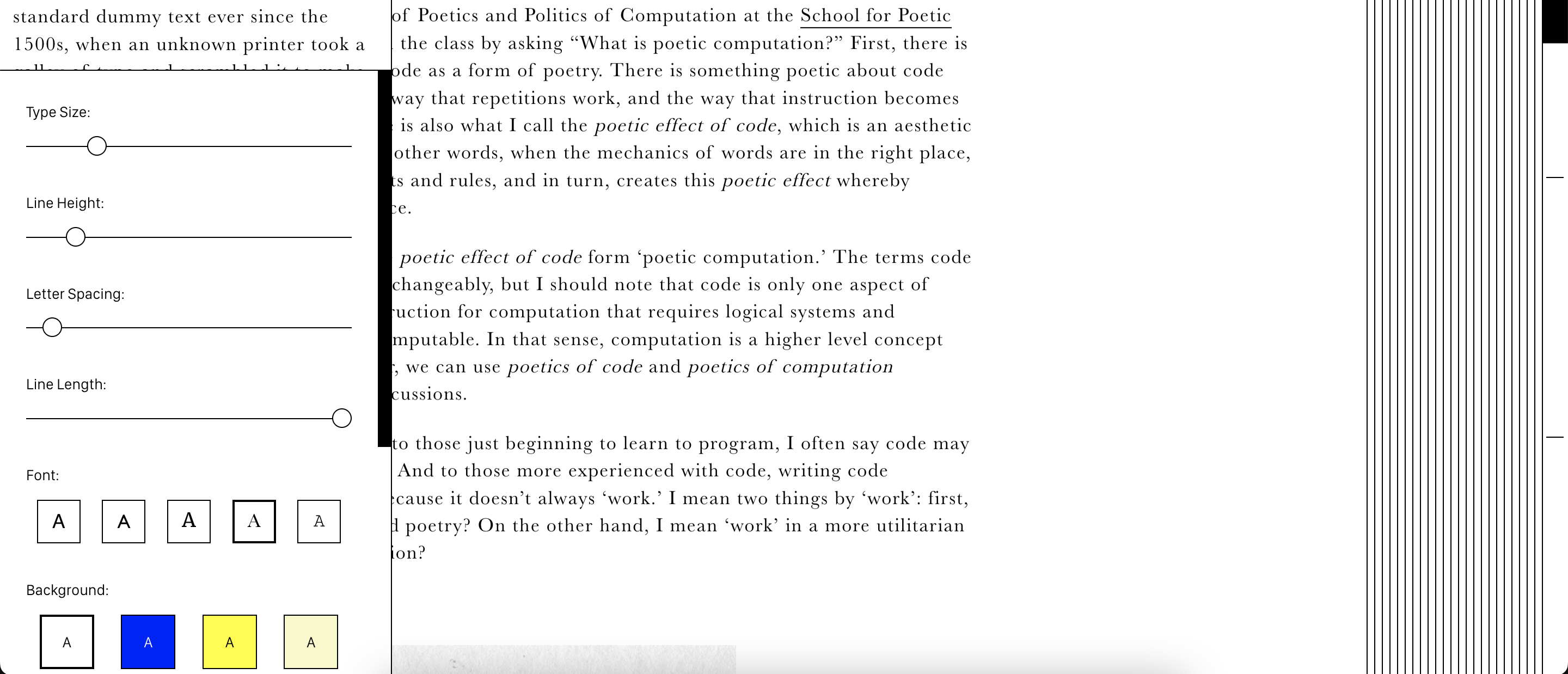
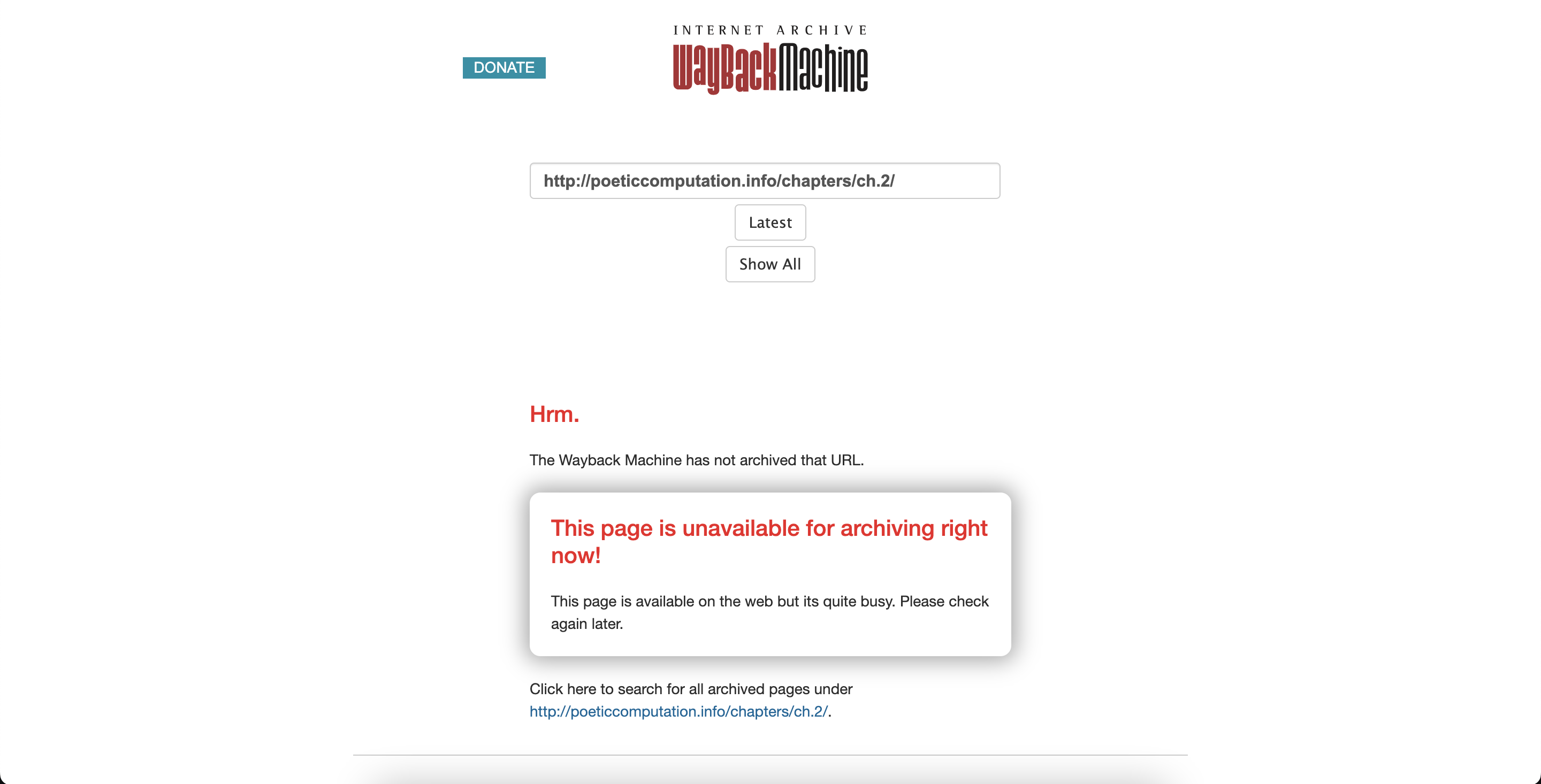
I decided to try another avenue. Taeyoon Choi also mentioned that the Poetic Computation Reader is open source, so I then went hunting for the code. Maybe I could deploy it myself, at least. I found it on github, published by the developer HAWRAF.
But, everything is in markdown, which I could not get to work! I tried running jekyll and doing all the terminal installations (ruby, etc) but nothing would work. I have to ask Andreas again later.
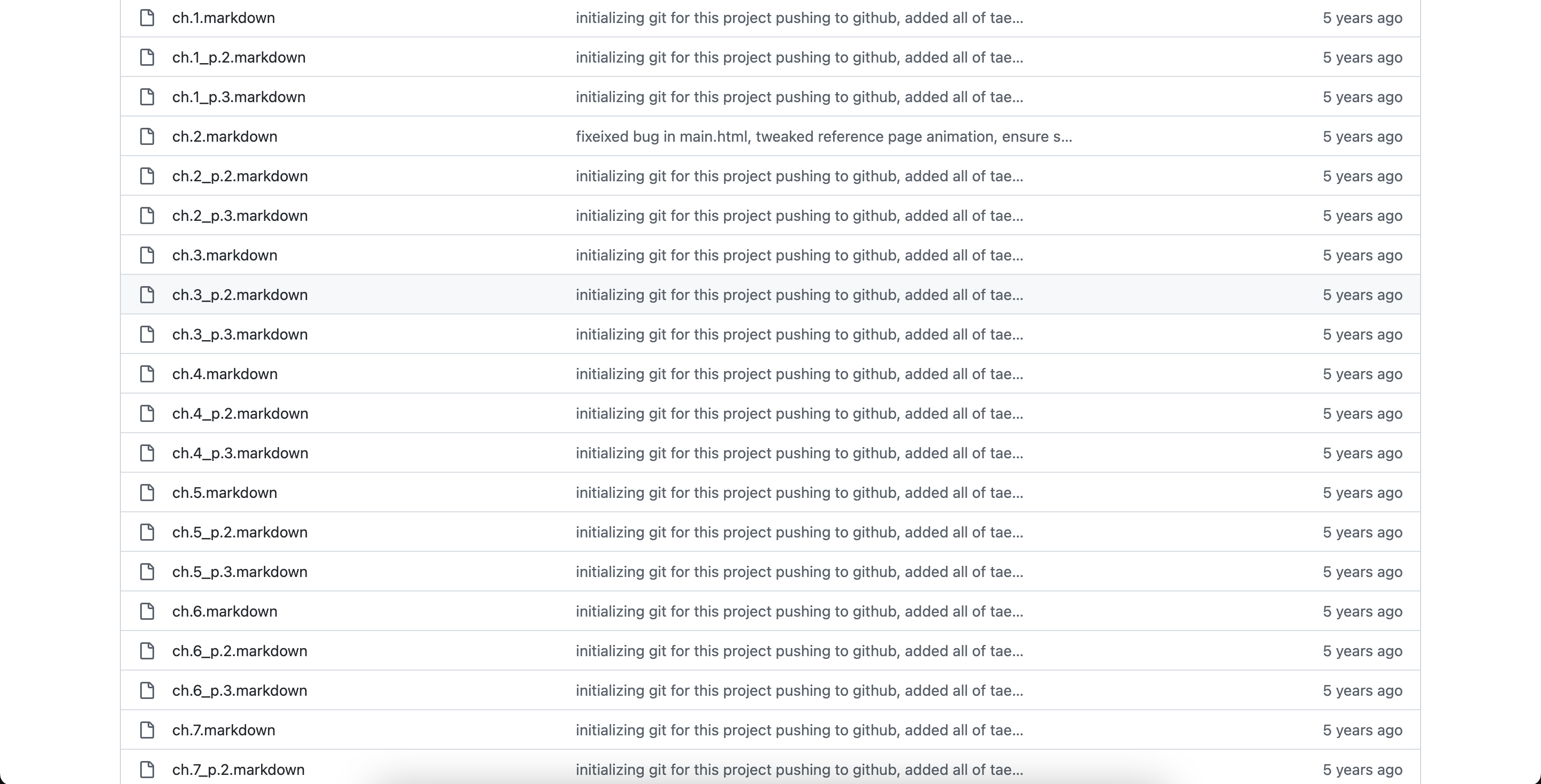
I was so hyper fixated on this Poetic Computation Reader that I probably spent about two days just trying to set it up, haha, so time management is something I should reconsider. I am just so unreasonably irritated, because the actual website looks so cool and I cannot access it. So close yet so far?
Anyways, I also visited Atelier HOKO’s Peel Here exhibition! Some cool photos:




I loved it, I think they did a really cool thing of breaking down a very mundane process and facilitating conversation around the basic act of peeling. They look into feelings of satisfaction, frustration, achievement and completion with the act. ‘Peeling’ is manifested in many different mediums: collaborative exhibitions, an AR filter, an interactive game, stamps, stickers, and more.
I also revisited the Future World exhibition with Matin to do research for By Invitation Only, but it was also really relevant to my research project. teamLab deals with notions of nature represented in a digital medium, through ‘cybernatures’. In my compendium, I discussed their work and the dynamics of interaction between participants and the artificial ecosystems they depict. ‘Flutter of Butterflies Beyond Borders’ was one such gallery artwork, which I experienced myself for the first time at the ArtScience museum! Basically, you touch the butterflies and then they die, which is quite brutal but also communicates the need to not exploit nature. I also specifically liked this one ambient floor to ceiling wall that depicted a collection of virtual plants slowly growing, changing and evolving.
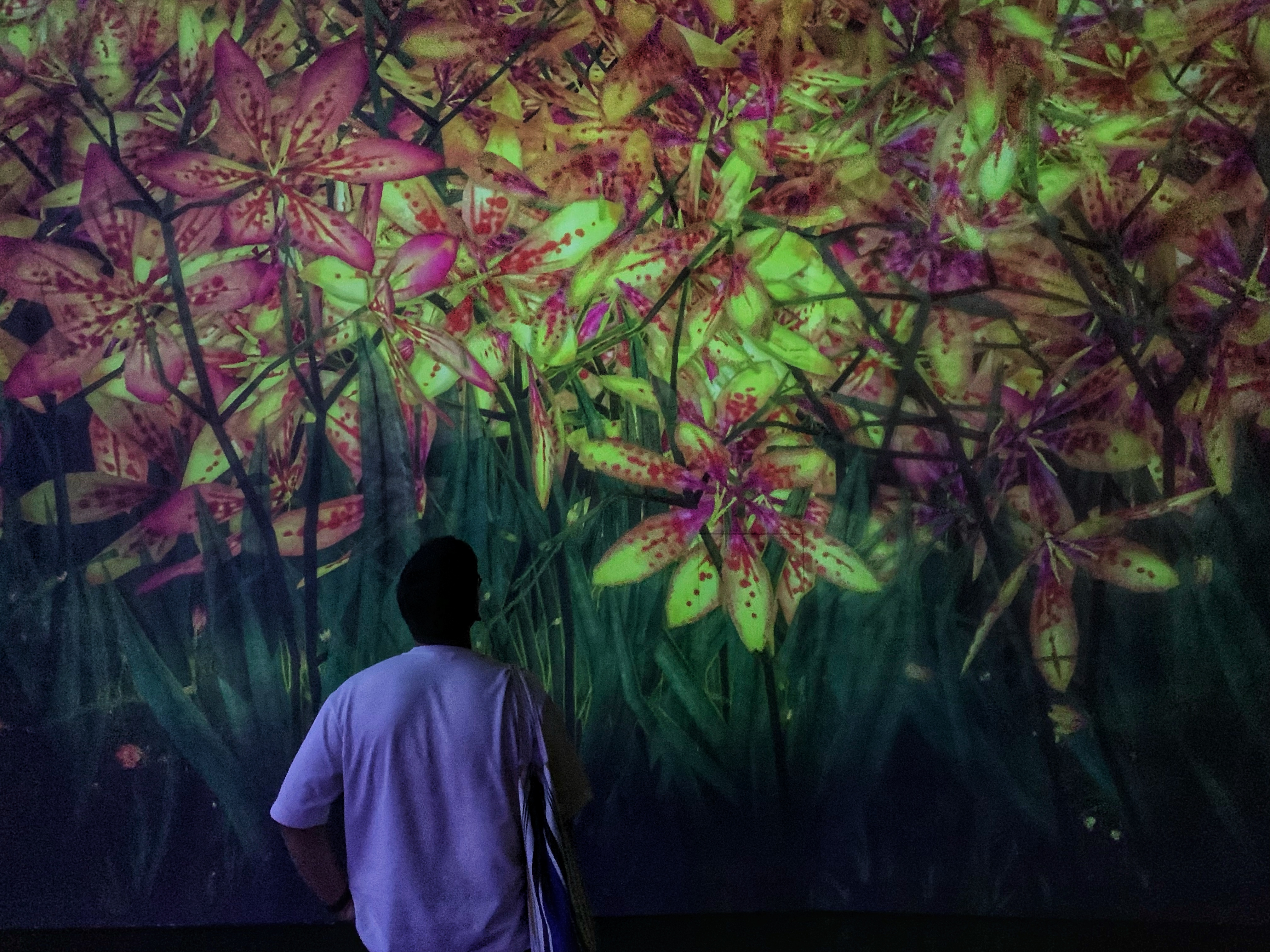
I am very insistent about my outcomes being entirely tangible and tactile because I think more direct experiences can facilitate a closer emotional relation with plants. However, I do think exploring a more virtual representation of plants is worthwhile so I can truly map out the differences and compare. I had this idea of using projection mapping onto the surface of a leaf, for instance, to help visualise and magnify its own internal processes.
I think projection mapping onto a living plant, which grows and droops and orients itself towards any light could definitely pose a challenge but also result in more interesting outcomes!
Turns out it's not a very original idea to begin with! Sad.